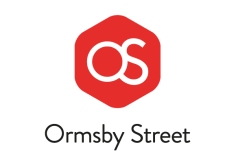It’s the “Debt Collection Awards” today – who knew there was an awards ceremony for that?

To maintain a healthy business and avoid bad debt, not only do you need to get paid for the goods or services you provide, but you also need to get paid on time. So, to reduce the risk of having to call the debt collectors, here are some tips:
1) Check your customers’ creditworthiness – you can use CreditHQ (it’s free), to search for the companies you trade with and find their credit worthiness. The lower the credit indicator, the greater the risk of a company facing financial difficulties.
2) Set credit limits – often smaller and younger companies will have a lower score, which doesn’t necessary mean they won’t pay, but you can consider setting a lower credit limit until you are confident that they can and will pay on time.
3) Know when you should get paid – manage your cash flow by forecasting when invoices are due and keeping an eye on any changes in payment patterns and delays with your existing customers. For new customers who you are yet to trade with, check when they are likely to pay you. Search for the company on CreditHQ and look at the payment indicator – the lower the number, the greater the risk of a company paying their bills late.
4) Monitor the companies that you are trading with – you can set up an account on CreditHQ (did I mention, it’s free!), and create a ‘Watch list’; you’ll then get alerts when credit or payment indictors change for the companies that you are watching, so you’ll know if who you might need to chase for payments.
5) Give clear terms – make your terms visible to your customers by publishing them on your website, on your invoices and send a copy to your customers upfront. Include a clause stating that you continue to own the goods or services until they have been paid for. You could offer discounts for payments made within 30 days, and charge interest on anything over (you’re legally entitled to), but if you chose to do this, make sure your terms specify this.
6) Manage your invoicing processes:
- Send invoices on time.
- Make sure you find out the right person or department to send the invoice to, and request an acknowledgement that it has been received.
- Keep up to date records on who owes you what and when.
- When an invoice is due, chase it.
- Stop supplying customers who don’t pay on time.
- Resolve any disputes quickly – payments are usually withheld until the customer is satisfied.
- If you have customers who regularly pay late, increase the prices that you charge them, or cancel any credit facilities.
If you don’t get paid, even after chasing, then here’s what to do next..
Before you go down the debt collection path, try one last time to recover the debt yourself, phone and write to the customer and let them know that this is your next course of action, as this may be enough to get them to pay. Also try and find out why they haven’t paid, as it may be a problem with their accounts system, or they may be having problems, and you could agree a repayment schedule.
Decide if the amount is worth pursuing – it may not be worth your time or the cost to collect, so let it go and move on.
 If you do decide to pursue the debt, then use a debt collection agency, or take legal action using a solicitor or via the small claims court (https://www.gov.uk/make-court-claim-for-money/overview). A reputable debt collection agency can chase late payments in a professional manner, without alienating the customer.
If you do decide to pursue the debt, then use a debt collection agency, or take legal action using a solicitor or via the small claims court (https://www.gov.uk/make-court-claim-for-money/overview). A reputable debt collection agency can chase late payments in a professional manner, without alienating the customer.
Make sure you check the costs – there may be a flat fee or a percentage of the debt recovered, or both, and ask about additional charges.
Don’t delay chasing any bad debt and good luck. Please do remember to reduce your risk though, by knowing your customers better – use CreditHQ to check them out!
If you on the other end of the debt collection process, and are being pursued by debt collectors, then here is advice on how to deal with it: http://www.money.co.uk/article/1009025-how-to-deal-with-debt-collectors.htm










